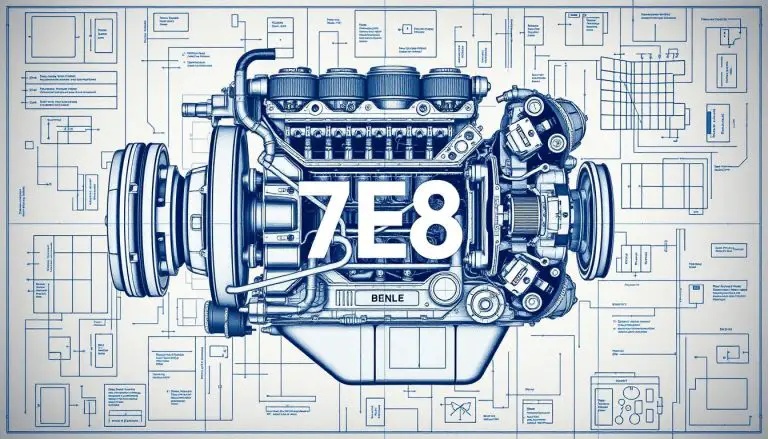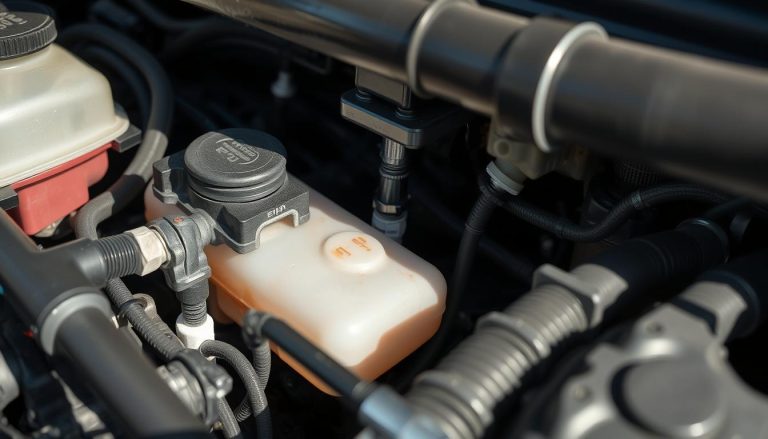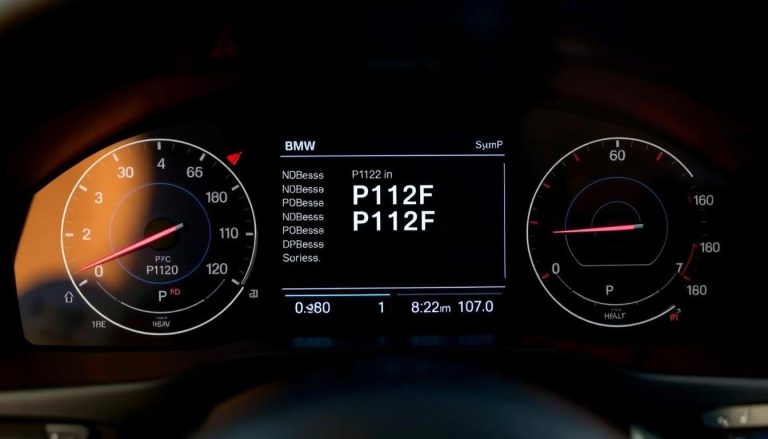When your vehicle’s check engine light flickers to life, among the myriad of codes that could pop up, P0094 is one you might encounter. It signals a fuel system leak—specifically a small leak—that can leave you scratching your head in confusion. What does this code mean for your car’s health? Is it serious enough to warrant immediate attention?
In this guide, we’ll unravel the mysteries surrounding the P0094 code. From its causes and symptoms to diagnosis and fixes, we’ve got everything you need to know about tackling this issue head-on.
What does the P0094 code mean?
The P0094 code indicates a fuel system leak detected, specifically pointing to a small leak. This diagnostic trouble code (DTC) is part of the OBD-II system that monitors your vehicle’s performance.
When this code appears, it means that the engine control module (ECM) has identified an imbalance in fuel pressure. The ECM continuously checks for leaks while ensuring optimal fuel efficiency and emissions levels.
A small leak can stem from various components within the fuel system, such as hoses or connectors. Even minor issues can lead to significant problems if left unchecked.
Understanding what P0094 signifies helps you take action before things escalate. Addressing this warning promptly can save time and money down the road while keeping your vehicle running smoothly.
What parts can be affected by P0094 code ?
The P0094 code primarily relates to the fuel system. When this code triggers, several components may be impacted.
Fuel injectors are often at risk. These parts deliver fuel to the engine and can malfunction if there’s a leak in the system.
Another area of concern is the fuel pressure regulator. A compromised regulator can lead to inconsistent pressure, affecting overall performance.
The fuel lines themselves might also show signs of wear or damage. Cracks or loose connections could easily introduce leaks into the system.
Additionally, the evaporative emissions control (EVAP) system can be affected by P0094 issues. This part helps prevent hydrocarbon emissions and functions alongside other components in detecting leaks.
Don’t overlook seals and gaskets within these systems; they play a critical role in maintaining pressure integrity throughout your vehicle’s fuel delivery network.
What are the possible causes of a P0094 code?
The P0094 code typically indicates a small fuel system leak detected in your vehicle. Several factors can contribute to this issue.
One common cause is a damaged or loose fuel line. When these lines are compromised, they may allow fuel to escape, triggering the code.
Another possibility is a malfunctioning fuel pressure regulator. If it fails to maintain appropriate pressure levels, it can lead to leaks within the system.
Additionally, faulty injectors might be culprits as well. When they don’t seal properly, excess fuel can leak out and trigger warning codes like P0094.
Don’t overlook potential issues with vacuum hoses either; cracks in these components can disrupt the entire system’s integrity.
Improper installation of aftermarket parts may also create unintended problems that lead to this specific trouble code appearing on your dashboard.
What are the common symptoms of a P0094 code?
When the P0094 code triggers, your vehicle might start showing several telltale signs.
One of the first symptoms is poor fuel efficiency. You may notice that you’re filling up more often than usual, which can be frustrating and costly.
Another common issue is engine performance problems. The car may hesitate during acceleration or struggle to maintain speed on inclines.
You could also encounter rough idling. If your engine feels shaky while at a stoplight, it might be due to this code being active.
Additionally, check engine lights are almost always present with a P0094 code. This warning signal prompts immediate attention for any driver concerned about their vehicle’s health.
There may be noticeable fuel odors around the car or in the cabin area—an indication that something isn’t quite right with your fuel system.
What are the diagnostic steps for a P0094 code?
Diagnosing a P0094 code involves several systematic steps to pinpoint the issue. Start by connecting an OBD-II scanner to your vehicle’s diagnostic port. This will allow you to read the trouble codes stored in the engine control unit.
Next, take note of any additional codes present. Sometimes, multiple issues can be indicated simultaneously, which could provide more context for the leak detection.
Visual inspection follows this initial step. Check all fuel lines and connections for signs of wear or damage. Look closely at seals and fittings that might have developed leaks over time.
Performing a fuel pressure test is also essential. This helps determine if there’s abnormal pressure in your system that could indicate where a small leak may exist.
Reviewing service records can offer insights into previous repairs or recurring problems related to fuel systems, aiding in accurate diagnosis.
How serious Is the P0094 Code? Can I continue driving with the P0094 code?
The P0094 code indicates a small fuel system leak, which shouldn’t be taken lightly. While it may not cause immediate engine failure, the implications can escalate if ignored.
Driving with this code could lead to more severe issues down the line, such as decreased fuel efficiency or increased emissions. Furthermore, a persistent leak might compromise your vehicle’s performance and safety.
It’s essential to monitor your car for any changes in handling or responsiveness. If you notice unusual behavior, it’s best not to delay repairs.
Long-term exposure to a leaking fuel system can pose fire hazards too. Therefore, addressing the root cause promptly is advisable rather than risking further damage or safety concerns while on the road. Keep an eye on your dashboard lights; they’re there for a reason!
What are the repair solutions for a P0094 – Fuel System Leak Detected – Small Leak ?
Repairing a P0094 code involves several steps. First, it’s essential to pinpoint the source of the fuel leak. This may require a thorough inspection of fuel lines, connectors, and seals for any signs of wear or damage.
If leaks are found in hoses or connections, replacing those parts is usually straightforward. Ensure you use high-quality replacements to prevent future issues.
In some cases, the issue might arise from a faulty fuel pressure regulator or injector. Testing these components can confirm their condition before deciding on repairs.
After addressing any identified problems, resetting the engine’s control module (ECM) is crucial to clear the error code. It allows you to monitor if the fix was successful.
Regular maintenance can significantly reduce recurrence chances. Keeping an eye on your vehicle’s fuel system helps catch minor issues before they morph into bigger problems down the road.
How long and How much does it cost to diagnose and repair a P0094 code?
Diagnosing a P0094 code typically takes about one to two hours at a repair shop. This timeframe involves connecting the vehicle to an OBD-II scanner and performing visual inspections of the fuel system.
The cost for diagnosis usually ranges from $100 to $150, depending on labor rates in your area.
If repairs are needed, costs can vary significantly based on underlying issues. Simple fixes like tightening clamps might be inexpensive, while replacing components like fuel lines or injectors could run several hundred dollars.
Parts prices fluctuate too; expect anywhere from $50 for minor parts up to over $500 for more complex replacements.
Keep in mind that additional diagnostics may arise if multiple codes appear, which can further increase total expenses. Always request an estimate before proceeding with any work.
How can I avoid a P0094 code?
To avoid a P0094 code, regular maintenance is key. Keep up with your vehicle’s service schedule, including fuel system checks and inspections.
Pay attention to fuel quality as well. Using contaminated or low-quality fuel can harm the entire system and lead to leaks. Always refuel at trusted stations that have a good reputation.
Inspecting hoses and connections regularly helps catch potential issues early. Look for cracks, wear and tear, or any signs of leakage in the fuel lines.
It’s also wise to replace old or worn-out components like gaskets and seals promptly. These small parts play a big role in maintaining overall integrity.
Consider using high-quality additives designed for cleaning the fuel system. These products can help keep everything functioning smoothly while reducing the likelihood of leaks appearing over time.
What happens if you ignore a P0094 code?
Ignoring a P0094 code can lead to more than just an error light on your dashboard. A small fuel system leak, if left unattended, may escalate into significant engine problems over time.
You might experience decreased fuel efficiency as the leak worsens. This not only impacts your wallet but could also contribute to increased emissions, causing environmental concerns.
Additionally, other components in the fuel system can become damaged due to prolonged exposure to leaks. The longer you wait, the more extensive and costly repairs may be required.
In severe cases, neglecting this issue could even lead to stalling or difficulty starting your vehicle. Safety should always come first when it comes to potential leaks that could affect performance.
Is the P0094 code specific to certain car makes or models?
The P0094 code is not exclusive to specific car makes or models. It can occur in various vehicles across different brands, primarily those equipped with advanced fuel systems.
However, certain manufacturers might experience this issue more frequently due to their design choices or fuel system configurations. For instance, some popular brands like Ford, Chevrolet, and Honda have reported instances of the P0094 code in particular models.
It’s essential for vehicle owners to consult their service manuals or forums dedicated to their specific brand for detailed insights. Patterns often emerge within particular lineups that may help pinpoint underlying issues quicker.
Regardless of make or model, a thorough diagnostic approach remains vital when addressing any error codes related to fuel systems.
What other codes may be related to P0094?
When dealing with the P0094 code, it’s essential to be aware of other trouble codes that may appear alongside it. These related codes can provide additional insight into underlying issues within your vehicle’s fuel system.
For instance, you might encounter P0087 (Fuel Rail/System Pressure Too Low) or P0455 (Evaporative Emission Control System Leak Detected). Each of these codes highlights specific problems that could correlate with a small fuel leak detected by the P0094 code.
Understanding these connections can aid in diagnosing and fixing the problem more efficiently. If multiple codes arise, addressing them collectively often leads to a more comprehensive repair strategy. By staying informed about potential related trouble codes, you’ll enhance your ability to maintain optimal performance for your vehicle and ensure safety on the road.


